Tiny Palau on why it maintains diplomatic ties with Taiwan despite Chinese pressure
While China has been successful in pressuring some Pacific nations to cut Taiwan off, Palau remains firm on the friendship.
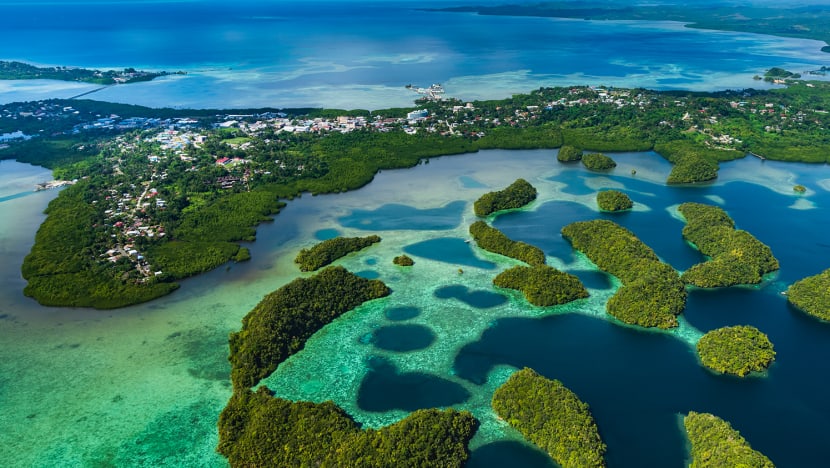
Located in the western Pacific, Palau comprises about 340 islands, islets and atolls, of which just eight islands are inhabited. (Photo: iStock)

This audio is generated by an AI tool.
PALAU: The island nation of Palau, known for its lush greenery, pristine beaches and breathtaking underwater landscapes, is a paradise for tourists seeking a seaside getaway or a diving adventure.
But the geopolitical waters surrounding the tiny country in the western Pacific Ocean have not been quite as tranquil.
It is one of Taiwan’s 12 remaining diplomatic allies and has in recent years faced pressure from China to switch ties to Beijing.
While China has been successful in pressuring other Pacific island countries to cut Taiwan off, Palau President Surangel Whipps Jr has stood firm on the friendship.
“Our relationship with Taiwan is strong, it's solid,” he told CNA.
“It's based on shared values and shared commitment. Our relationship with Taiwan has been unwavering.”
To counter China’s expanding reach in the region, Taiwan has poured in resources and efforts to keep Palau on its side.
HEALTHCARE & AGRICULTURE INITIATIVES
For the last 16 years, a Taiwanese medical team has been stationed at a hospital on the island to provide locals with medical know-how.
Backed by Taiwan’s Shin Kong Wu Ho-Su Memorial Hospital, it holds a special place in the heart of a Palauan diver, who only gave his name as Ray.
The 35-year-old once suffered a serious infection in his left foot and local doctors told him he would not be able to keep it.
Just as he was about to give up, the medical team from Taiwan gave him a different prognosis – and saved his foot.
“I’m very grateful for the team that came here. Without them, maybe I would have lost my foot,” he said.
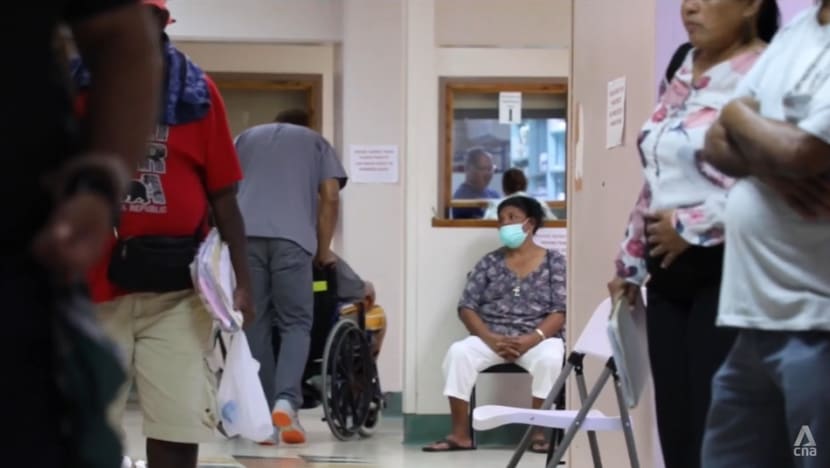
Palau has a population of less than 20,000 people, even smaller than an average borough in Taiwan.
Since Palau formed diplomatic ties with Taiwan in 1999, Taiwan has been a familiar presence to locals.
Aside from medical assistance, Taiwan also provides other support, from agriculture to animal farming, to keep up ties with Palau and its other diplomatic allies.
Palauan pig farmers are among those who have benefited from Taiwan’s support over the years.
“Taiwan is providing me with piglets that are healthy and will likely survive. It is the most important assistance I take from them. Before that, I used to get piglets from other farmers in Palau,” a 59-year-old farmer, who gave his name as Jefferson, told CNA.
Such efforts have convinced ordinary Palauans like Ray and Jefferson that Taiwan is a friend worth having – at least for now.
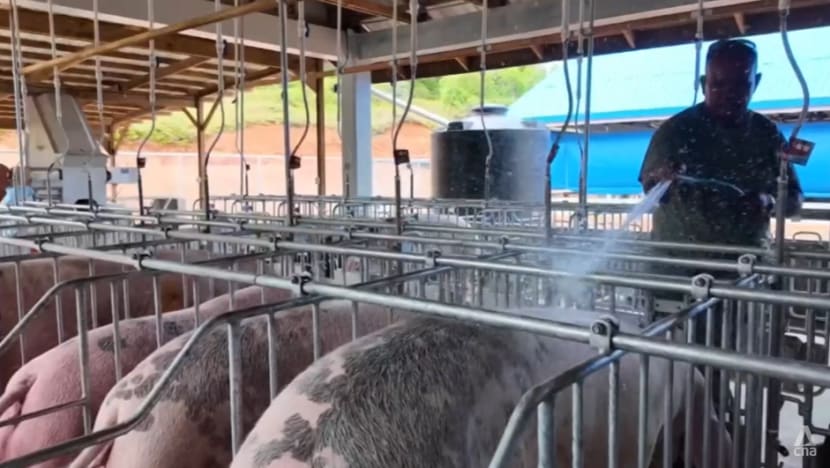
CHINESE INVESTMENTS TRICKLE IN
But in recent years, Palau has been seeing the rise of an alternative revenue source.
Latest official data shows that China has become the biggest investor in Palau, accounting for about half of the country’s foreign investment.
Former Palau representative to Taiwan Jackson Henry, who is now a real estate agent, said he has observed a rapid growth in Chinese presence in the country.
“The mainland Chinese are more aggressive and take bigger risks. Even though there’s no direct flight here, they still invest quite a bit of money,” he said.
Chinese investments account for 80 per cent of his business in the past five years and are still growing, he said, adding that most of the money was from private investors rather than the Chinese government.
As a businessman, Mr Henry said he welcomes investments from both China and Taiwan.
But the reality is not so straightforward.
CHINA’S SHADOW LOOMS
One of a limited number of countries that recognise Taiwan, Palau's size belies the nation's strategic importance.
The growing United States-China rivalry has made Palau increasingly important to the US’ defence planning in the region.
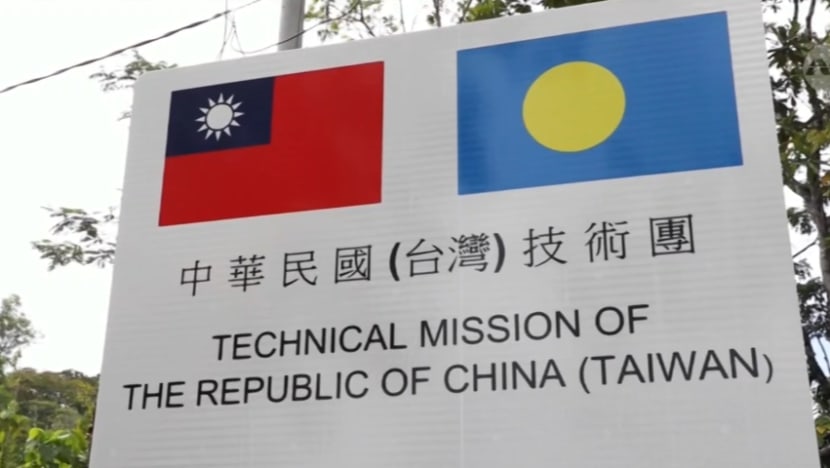
Palau was a US-administered territory after World War II until 1986 when it entered into the Compacts of Free Association (COFA) agreement with the US, joining the Marshall Islands and Micronesia.
COFA gives the US military access to these Pacific allies’ vast maritime territory, allowing Washington influence and control in the strategic region.
Beijing is expected to turn up the heat on Taiwan by working even harder to take away its remaining international allies, including Palau.
This comes after newly-inaugurated Taiwan President William Lai followed in the footsteps of his predecessor Tsai Ing-wen in ignoring the “One China” policy.
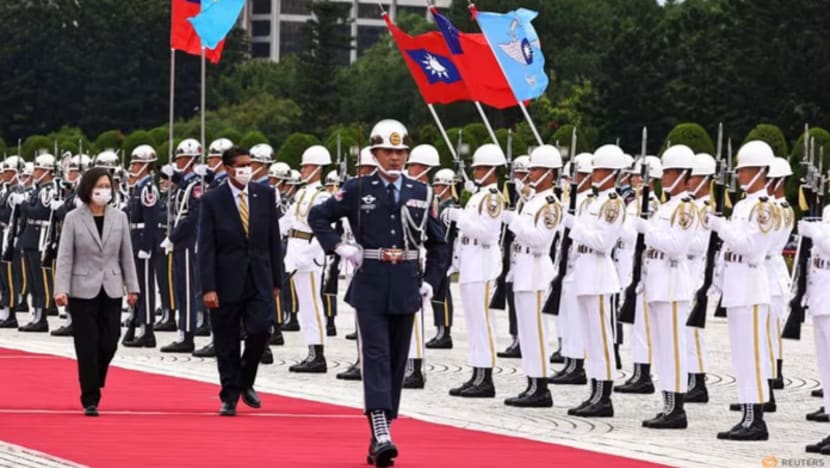
Beijing’s “One China” principle means no government can maintain formal diplomatic ties with both China and Taiwan.
As China’s economic might skyrocketed in the last four decades, switching sides made monetary sense to many countries.
Yet, Palau President Whipps Jr has warned against the lure of “fast money” and said his country will not abandon Taiwan.
PALAU WANTS TO BE FRIENDS TO ALL
Tourism accounts for about 40 per cent of Palau’s gross domestic product (GDP).
In 2015, the nation welcomed more than 163,000 visitors, about half of whom were Chinese.
China reportedly removed Palau from a list of approved travel destinations for Chinese tour groups since 2017, dealing a major blow to Palau's tourism industry.
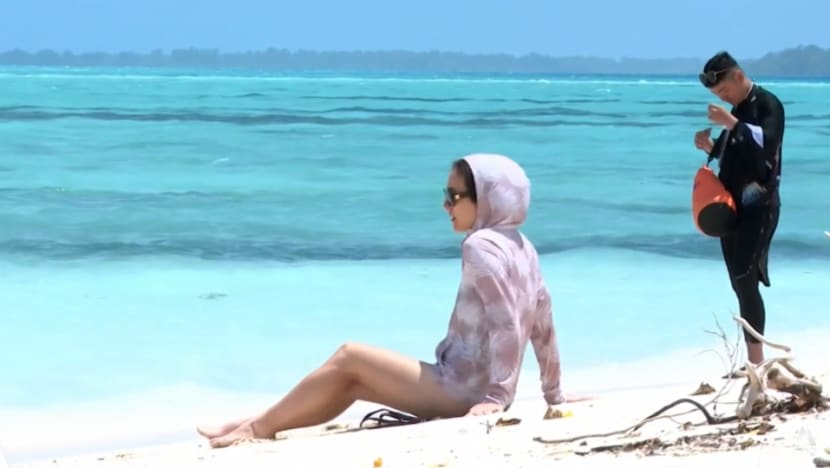
Mr Whipps Jr admitted that while the loss of income from Chinese visitors is significant, he emphasised tourism “should not be weaponised”.
“If you don't beat your wife to (force her to) love you, then it's true partnership,” he said.
“Palau people understand how important Taiwan is, as a true partner that really cares about the development of our island and promotion of our friendship.”
He said Palau wants to be a “friend to all and enemy to none”, including China.
“We've told China, we have no problems having diplomatic relations with you. But China said, ‘You have to denounce Taiwan’. And we said, ‘That's not an option’. We will not denounce our best friend,” said Mr Whipps Jr.
“It is important that countries respect each other's boundaries and territories. We want to make sure that we continue to promote a rules-based order. Even though we're small, we still should be respected as a country.”
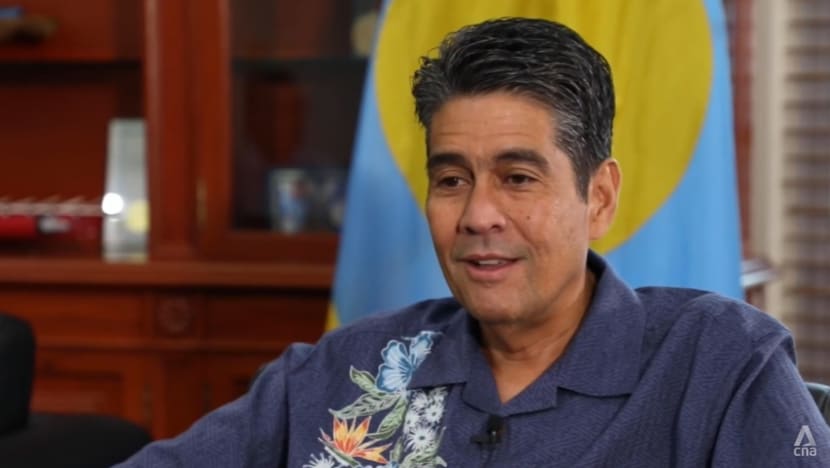
Last year, the US and Palau agreed to a new 20-year funding programme. Under the renewed pact – which was delayed in the US Congress by half a year – Palau will receive economic assistance of US$889 million from the US.
Experts said such delays could be viewed as a lack of Washington's commitment to allies in the Pacific region and could open their doors to China.
Mr Whipps Jr said he has discussed Palau’s economic security and stressors with Washington, warning that economic coercion from China could one day sway the island.
“Without economic security, that's when you get tempted… by fast money… and make decisions that can (cause) long term repercussions to our ultimate security and prosperity… that maybe could be detrimental to our society and our people,” he said.
“Our long-standing partners – the United States, Taiwan, Japan – are key to helping our economic development and we want to encourage their tourism and investment so that we can continue to diversify our economy and build economic resiliency.”
















